Jackie Betras hasn’t seen her mother in 13 years.
Her mother is back in El Salvador, where Betras was born, but even from far away, she supports her daughter.
Jackie’s husband Marvin has family in California. They don’t support their son even from states away, let alone countries.
The support, or lack thereof, is for the church the couple started together, Espíritu Santo. This Spanish-speaking church in Minneapolis is the direct aftermath of the Betras’ mutual call to ministry. After years of being hurt by the traditional Hispanic church, the couple decided they wanted something else but didn’t know where to find it.
Two years after officially opening its doors to the public spring of 2021, Espíritu Santo is working to encourage people to come back to the church, form a relationship with Christ on their own terms — not their families’ — and help heal religious trauma from the organized church.
The Betrases started dating when Jackie was 14, Marvin 17, and have been serving in the church together as a unit since then. As teenagers, they were on the worship team together, worked with the youth ministry and after getting married at 20 and 23, they led community outreach efforts and middle schoolers in church.
I come from a very traditional [religious upbringing] where everything was a sin. Even cologne was a sin.
— Marvin Betras, Espíritu Santo co-founder and co-pastor
“We felt like everything that we did, God would bless it,” Jackie said. “We saw God’s hand in what we did and people saw that, too.”
Members of church congregations, noting the couple’s servitude efforts, observed that the couple carried a mission within them — but that was the extent of it.
No other words. No encouragement. No call to action. Nothing beyond a compliment for their good deeds. While grateful, Jackie felt stuck.
“I grew up saying that a pastor needs to send you. We were never sent,” Jackie said.
While Jackie never thought she’d end up a pastor, Marvin comes from a ministry family where his father and uncle are pastors. He assumed he would end up there too, but didn’t want to carry out his ministry the way his family did.
“I come from a very traditional [religious upbringing] where everything was a sin,” Marvin said. “Even cologne was a sin.”
Wearing earrings was also a sin. Having piercings was a sin. So were tattoos and not dressing up for church. Women had to wear skirts or else they’d be sinning. Even wearing makeup was considered a sin.
But Jackie wears makeup. And earrings. And a nose ring.
Marvin has a pierced ear. He has tattoos. He wears skinny jeans, and yet he and Jackie stand on the stage and preach Sundays. They’re both pastors, despite their traditional upbringing telling them they’re not. After being members of one Hispanic church in Minnesota for a while, prior to becoming pastors, the couple mutually decided they needed to find a new church that wasn’t focused so much on the rules of what not to wear. This new church left them feeling even more stuck.
“We didn’t want to be the rebels who left… but we were not growing. We felt God was calling us for more,” Jackie said.
They’d had enough. Jackie and Marvin started having conversations about what their church would look like if they started one, but it was always hypothetical. Jackie was an undergraduate student at Bethel University when these conversations started and then became a graduate student in marriage and family therapy through Bethel’s seminary program. She didn’t have time to start a church. But Jackie couldn’t ignore the stirring in her heart.
Obedience is something Jackie strives for in her relationship with the Lord. Being attentive to what the Holy Spirit could be leading her to is a pinnacle of her faith. The call to obedience was made louder about six years ago.
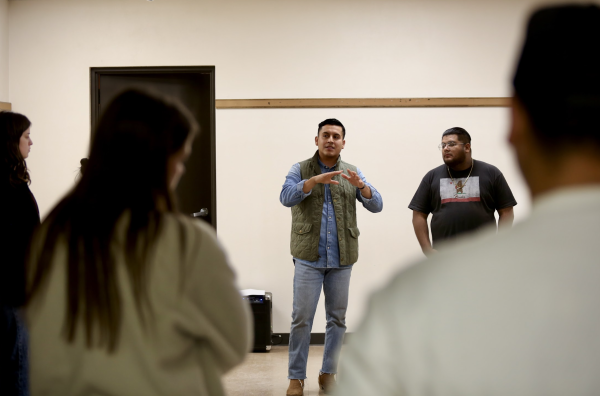
“I remember that the Holy Spirit was inviting me into his movement… I started praying for strangers when I was driving in the car,” Jackie said.
Slowly, the hypotheticals became a reality.
When COVID-19 sent the city into a lockdown, Jackie decided to start a small Bible study with friends over the phone. What started with just a couple of people soon grew to a consistent group of about ten, talking about the Lord in their individual homes. It wasn’t until the couple started opening their home to have in-person Bible studies that they realized they were serious about starting a church.
“We started at our house in Burnsville and wanted to sell the house, so we needed a space,” Jackie said. “That’s where Pastor Stephanie O’Brien comes in.”
O’Brien is the pastor at Mill City Church in Minneapolis, and she connected with Jackie through mutual connections like former Bethel pastor Laurel Bunker. After hearing about the home Bible studies and the couple’s desire to start a church unlike the Hispanic churches in the area, O’Brien grabbed Jackie’s hand and said, “Let’s go.”
Mill City relocated to a new church building in Minneapolis on 13th Ave with the help of a donation, leaving their previously occupied space at Las Estrellas Dual Language School open — the perfect new space for Espíritu Santo. Things like music equipment or maintenance tools became available for the Betrases to use, given to them by O’Brien and Mill City staff as they relocated.
“We were born alone as a church. We were six months old and she adopted us,” Jackie said. “Just like when you adopt a child who is six months old, you give them everything … That’s how we felt. Everything [Mill City] has gotten, we got.”
Community Impact Pastor at Mill City Adaobi Nduka said the decision to contribute to Espíritu Santo was prayerfully considered but in the end, a choice they know is worth it.
“We were seeing movement with Espíritu Santo and felt like we didn’t want to be in the way of them and their congregation,” Nduka said. “We are the church that walks alongside them.”
The other Latino church we went to was all about the pastors. They had their own parking lot. I was like, no, I can park anywhere…I can give my spot to the new people. I can park far away.
— Jackie Betras, Bethel alum, Espíritu Santo co-founder and co-pastor
At the end of 2018, Mill City held a prayer event where members of the church could write down what they prayed for on behalf of Mill City. Nduka happened to come across these slips of paper and was intrigued to see that an overwhelming amount of them prayed for Mill City to be more diverse. The extent of Mill City’s church efforts were not reaching the Hispanic and Spanish-speaking immigrant demographics, but they believe Jackie and Marvin are reaching a community that had not viewed the church positively in the past.
“For immigrants or children of immigrants, those are the people that their church really hits… They’re trying to walk with both [first and second] generations about how [they] know that the church looks different for the [second] generation,” Nduka said. “Their parent’s church is so dogmatic and judicial, but they come to Espíritu Santo and they feel they can still worship God without worrying about what they look like or how they are.”
Nearly five years after Nduka read those prayer slips, she can confidently say that “God is answering prayers” with the collaboration of Mill City and Espíritu Santo.
Despite now having the space for formal church services every Sunday, the couple knew they had further obstacles to face. For example, some Hispanic churches idolized the pastors more than focusing on the Gospel. Jackie and Marvin wanted the focus to be on God’s message rather than themselves.
“The other Latino church we went to was all about the pastors. They had their own parking lot,” Jackie said. “I was like, no, I can park anywhere … I can give my spot to the new people. I can park far away.”
Some Hispanic churches are uncomfortable talking about negative emotions. Jackie and Marvin wanted to normalize and destigmatize them, especially considering Jackie’s educational and professional background in therapy.
“We grew up in a church where … you cannot be mad, cannot be depressed, cannot be sad, cannot lament,” Jackie said. “We have lamentations in the Bible, what the heck are you saying we shouldn’t be mad or sad or that we shouldn’t cry?
Some Hispanic churches praised the couple for being servants and having a heart for ministry but did not support them or encourage them to act on that call. Jackie and Marvin want to encourage others the way they felt they missed out on.
To that, Marvin takes a compassionate yet tough love approach.
“We do a little bit of pushing, kind of like when someone is learning how to swim. Back home, they’ll throw you in the pool, you’ll act like you’re drowning but somehow you figure it out,” Marvin said. “Sometimes people just need that push. What are leaders for?”
Choosing a path divergent from the expectations ingrained in the Betrases’ upbringing in the church proves uncomfortable and divisive. Assuming the role of a female pastor without formal ministry education adds another layer to this challenge.
“The examples I have of Hispanic female preachers are not good. In the Hispanic church, [women] were a shadow of the husband or were too aggressive and manipulative,” Jackie said. “It felt like I needed to wear shoes that have not been created.”
Having just graduated with her masters in marriage and family therapy, Jackie is taking a break from school while Marvin attends seminary. Eventually, Jackie hopes to go to seminary, but for now she is supporting her husband through school just as he did for her. Meanwhile, the couple is focusing on Espíritu Santo and helping to heal religious trauma.
“We saw that our generation had left the church years ago. The Hispanic church wasn’t relevant, it was judgemental. It was focused on rules, not a relationship,” Jackie said. “Our desire is for the one who left the church because they never felt welcome, or enough [or] never felt connected.”
At Espíritu Santo, Jackie and Marvin don’t want to be the pastors who stand in the way, either, instead teaching the Gospel and asking questions that allow someone to make deeper connections on their own.
“We don’t think it’s our job to tell someone what to wear or put on, but to show the love of God, and at some point the Holy Spirit will do his job when it comes to conviction,” Marvin said.
For the past two years, around 30 to 40 people have consistently attended Sunday service at Espíritu Santo. The congregation is mainly young adults whose first language is Spanish or college students, typically from Bethel, who can earn class credits by volunteering there or who are studying Spanish as a second language. But Jackie believes that despite the difference in ethnicity and language, the common denominator is the reason why they’re attending Espíritu Santo.
“The typical testimony we have here is with people who haven’t been to church in seven or eight years and now they’re coming to Espíritu Santo,” Jackie said. “Or, [it’s] people who grew up in the church with their parents forcing them to go … but they never connected, and now they’re like, ‘I’m coming to Espíritu Santo now because I want to. I want to be close to [God] and that is my choice.’”

But when asked what the traditional Hispanic church still does not support the couple with, Jackie laughs and says, “Mainly, everything.” The lack of support hurts them both as a couple and in individual ways, but Jackie finds herself reminding Marvin that even Jesus did not have it easy when he came to earth to share the Gospel, so why should they expect to have it easy, too?
The Betrases believe that despite the lack of support from the church they grew up in, Espíritu Santo receives overwhelming support from local churches both Black and white.
Regardless of where the couple might end up one day, preferably living on a vineyard near the beach, they want to support people who have a calling to ministry in the way they wish they could have been.
“We want to care for younger pastors,” Jackie said. “We know how we struggled. There were a lot of years in the desert … but we saw the hand of God moving through all these things in the community and youth.”
Being the lead pastors at Espíritu Santo may not always be what God has in store for Jackie and Marvin, and they’re OK with that. They know they will be in ministry in one way or another and they will be doing it together.
“We always talk about what happens if God asks us to do something else. How do we get the people of Espíritu Santo ready for the next thing?” Jackie said. “We know that Espíritu Santo is God’s church … [but] God is always moving.”

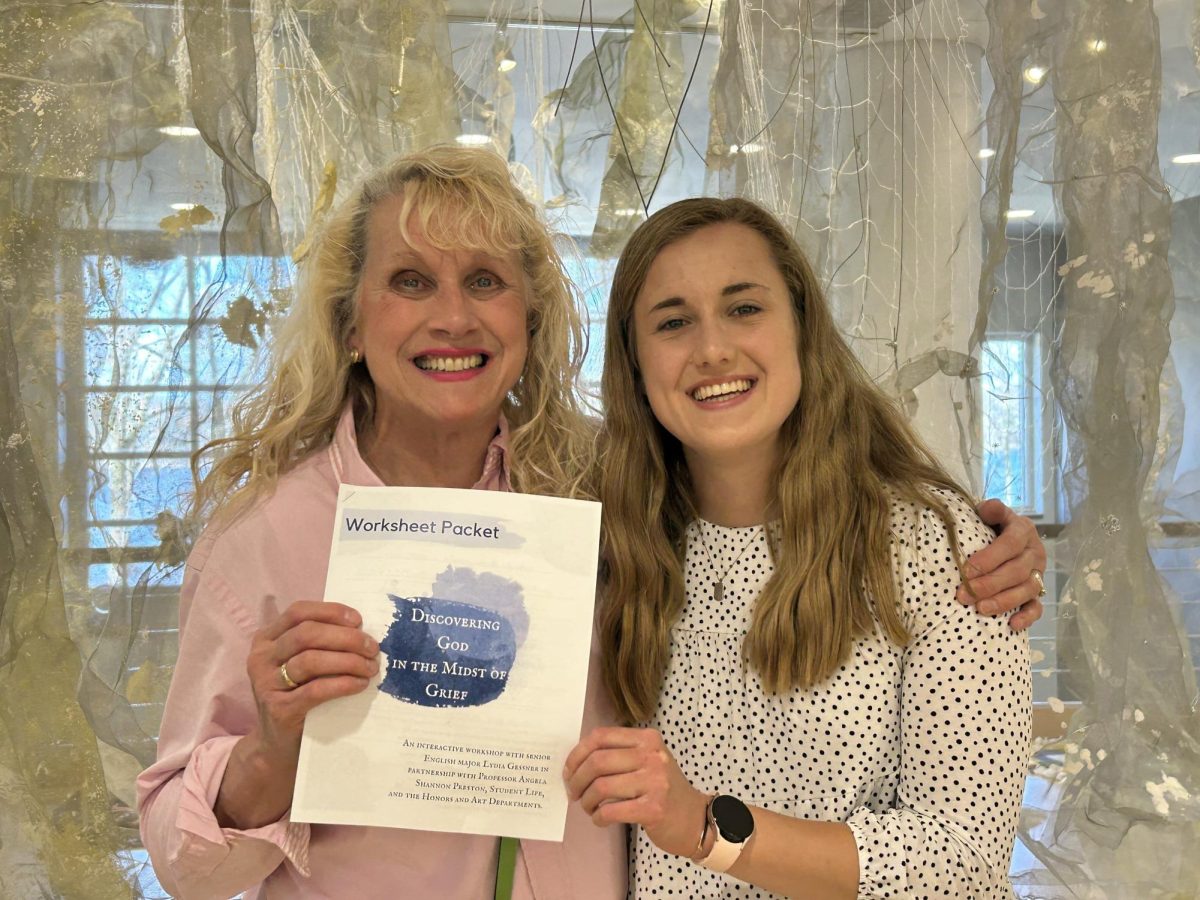

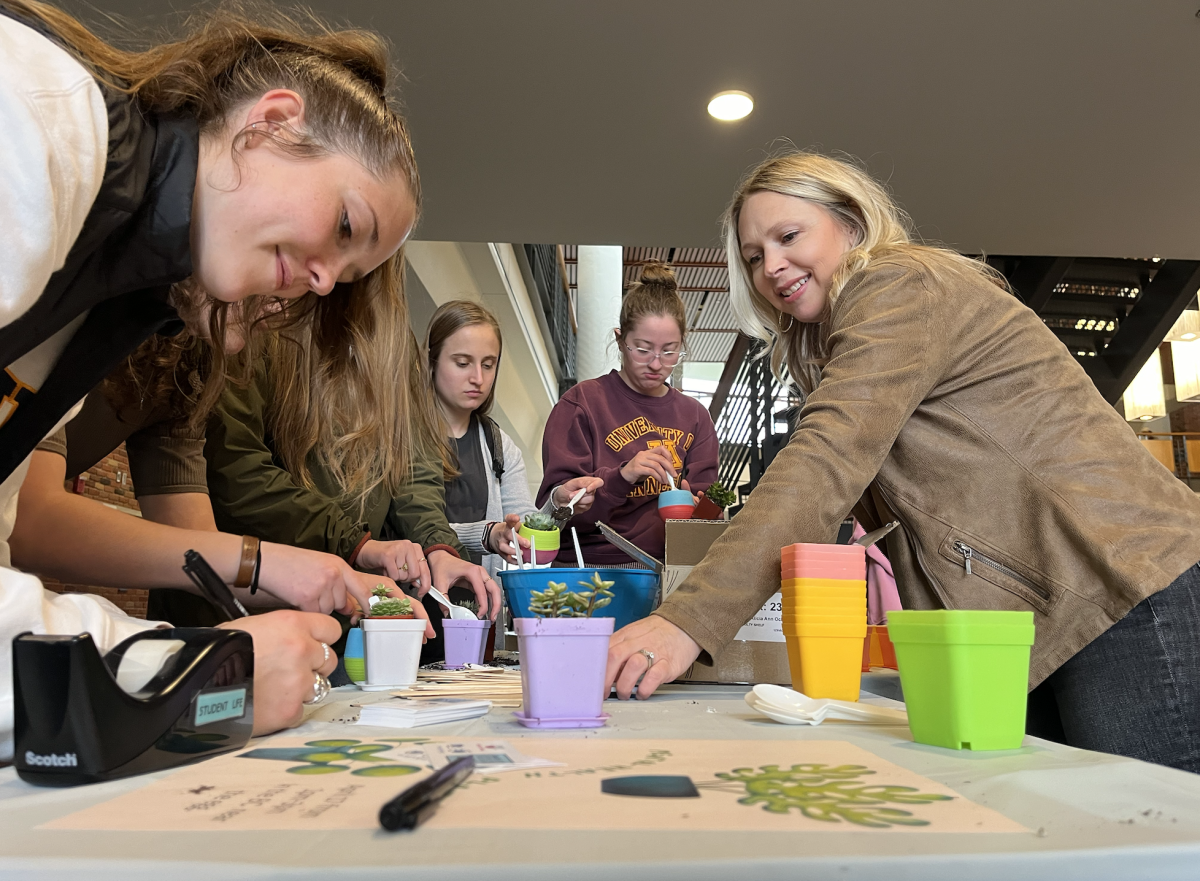
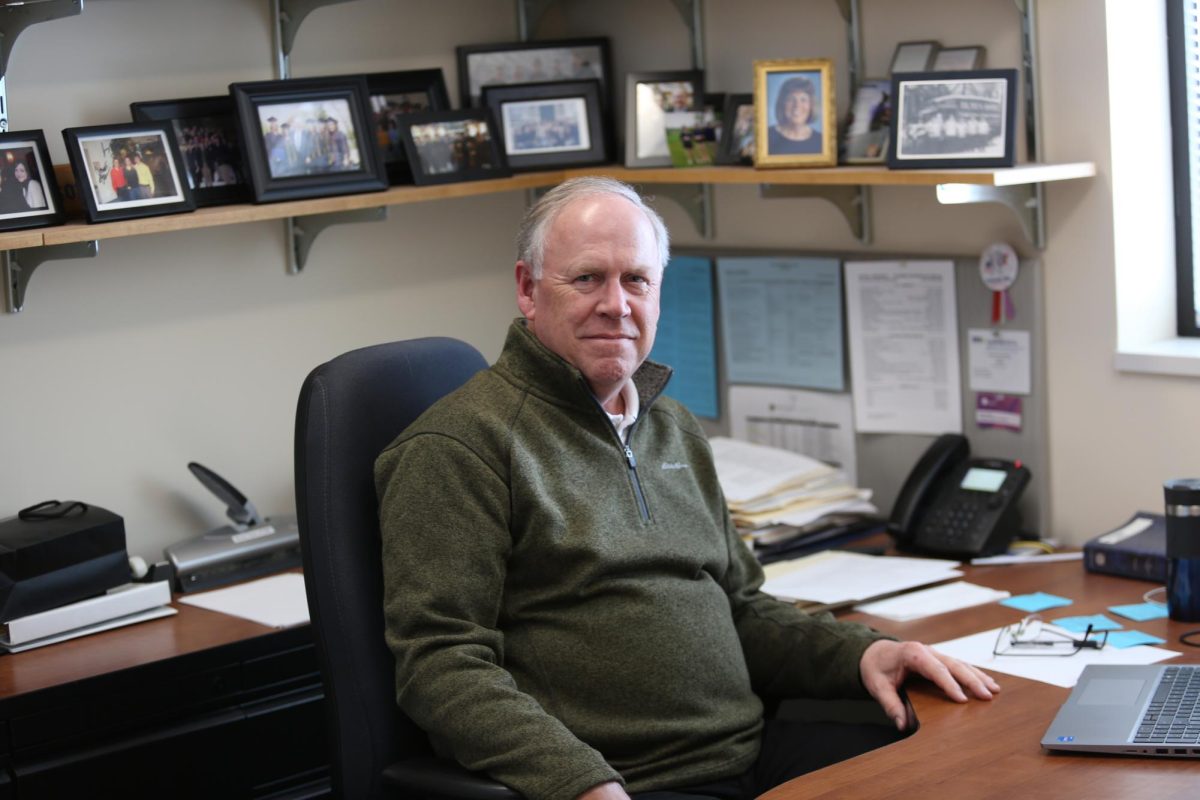
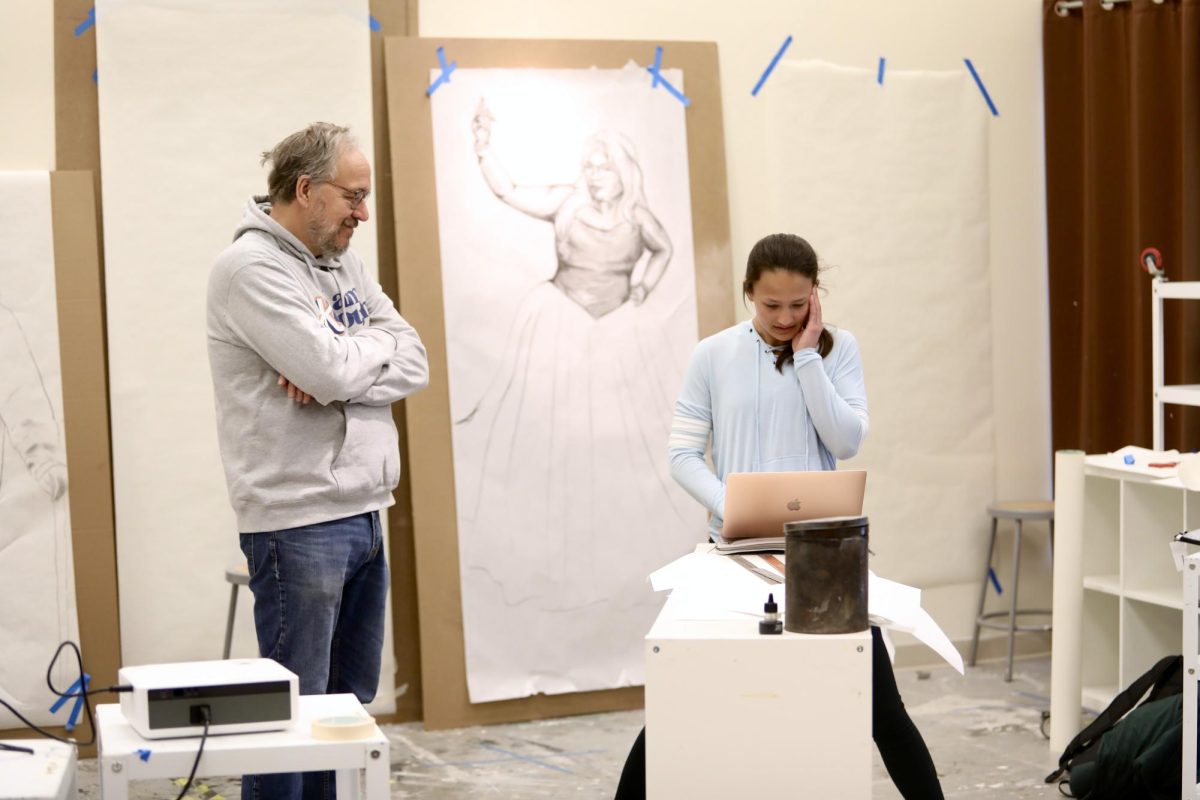
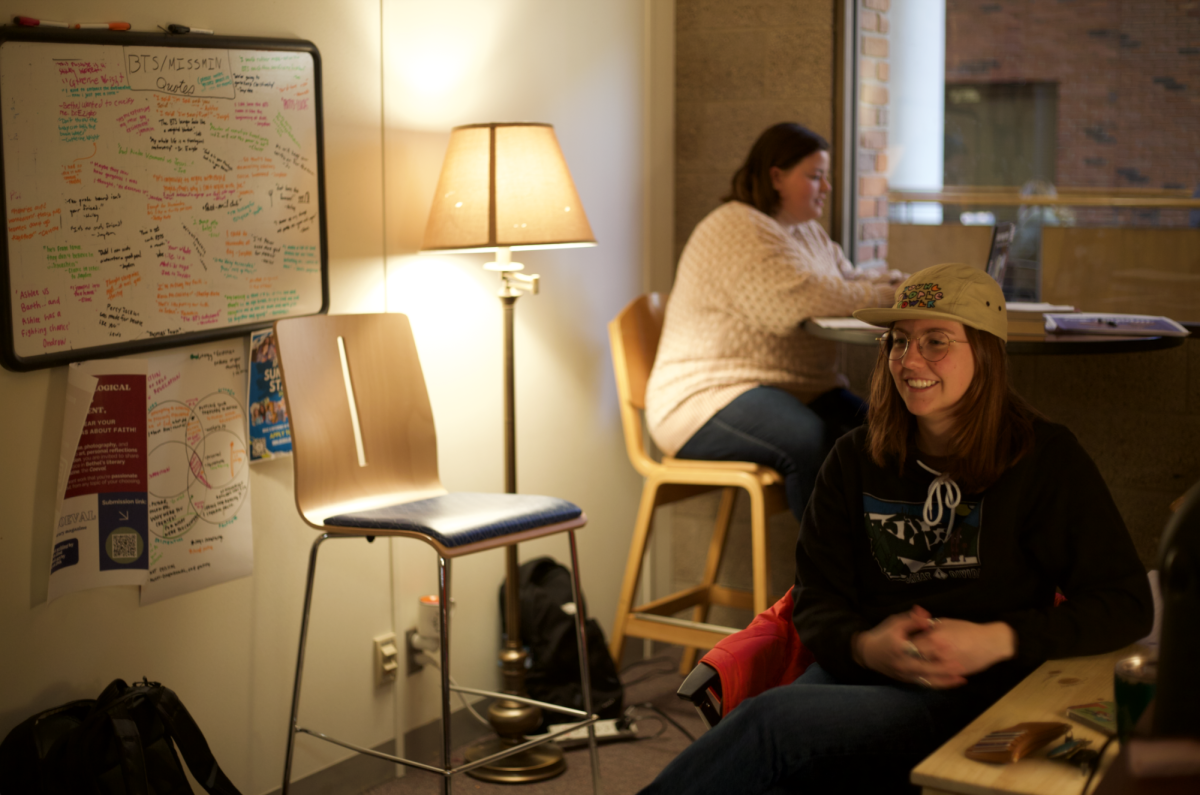
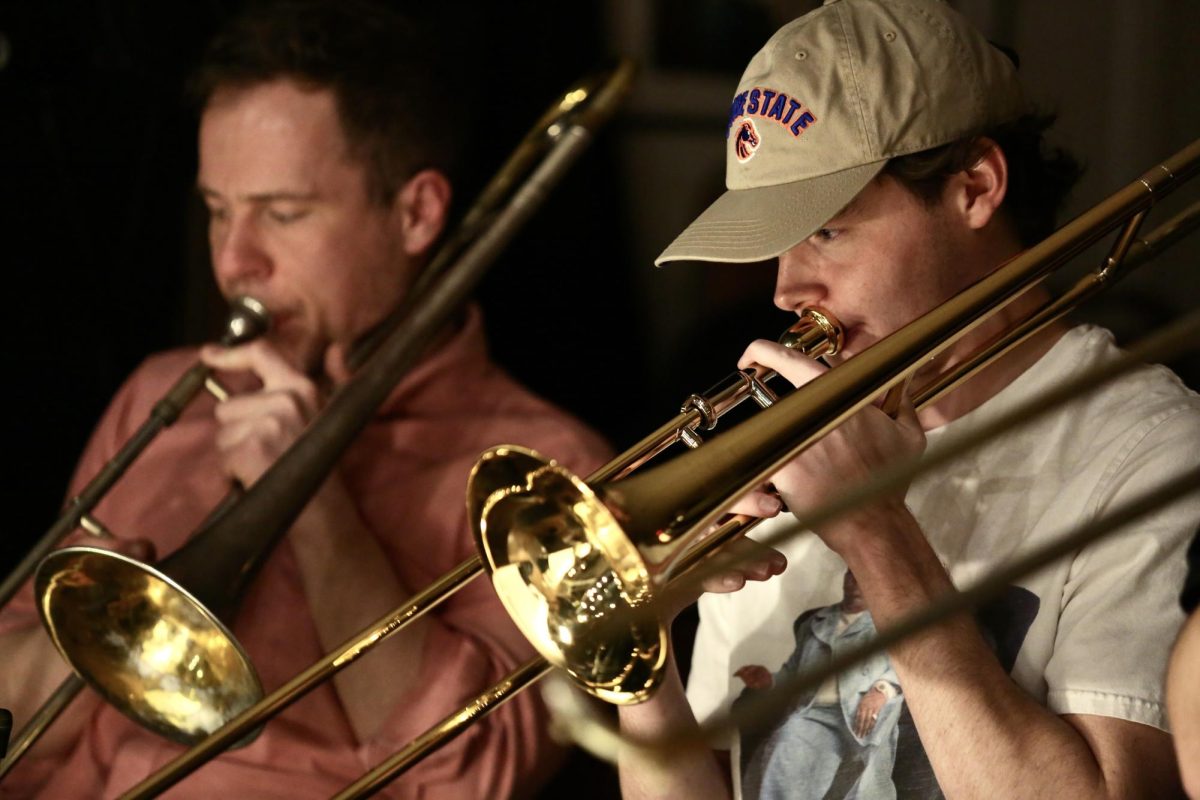
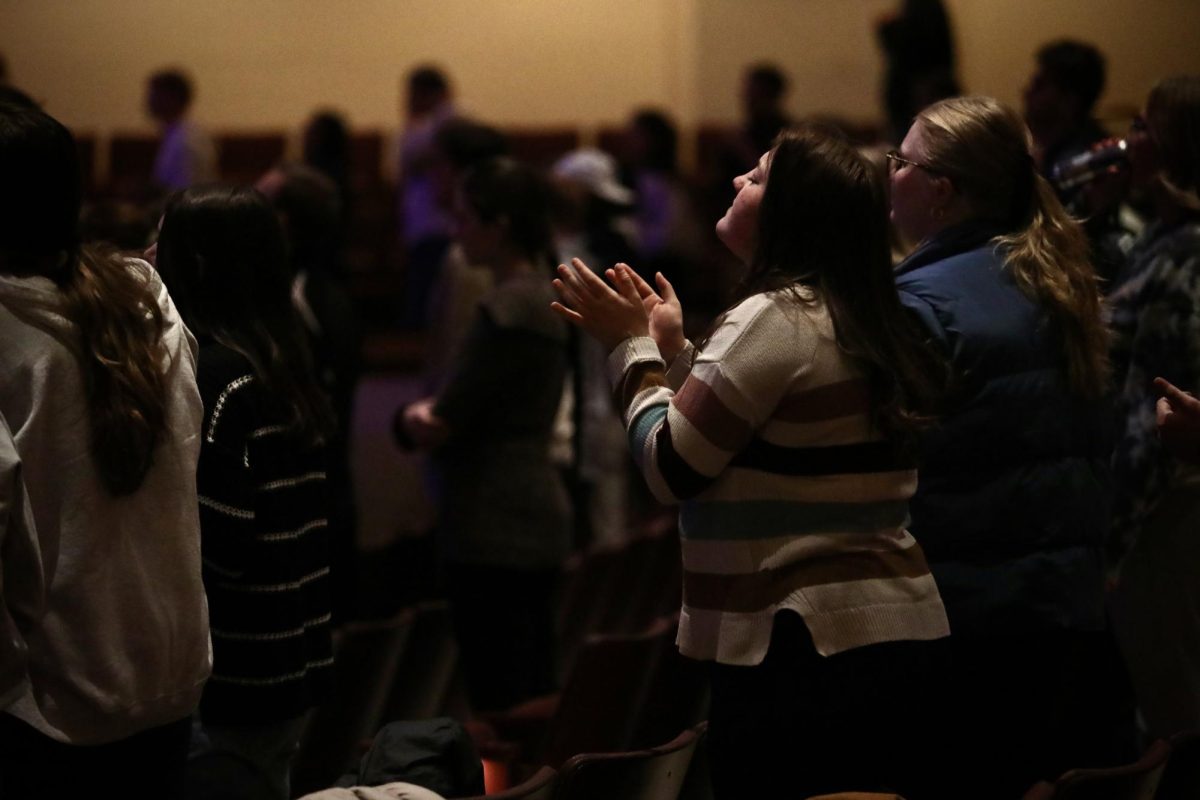











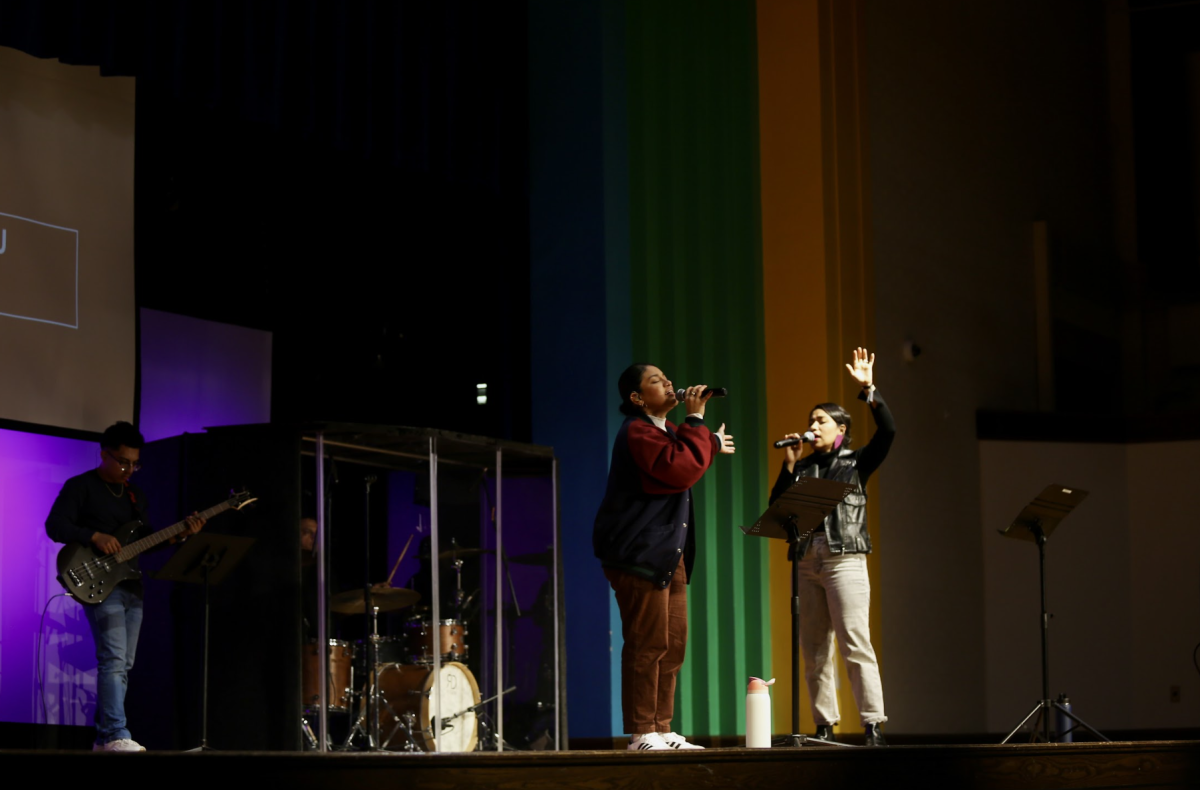

![Sabates talks with students near the front row in HC414 Feb. 15. About to start a psychopathology class discussing biases, Sabates asks how students are doing. “My favorite moments are the informal times [with students],” Sabates said.](https://thebuclarion.com/wp-content/uploads/2024/02/240215_Haveman_AngelaSabates_02-1200x800.jpg)